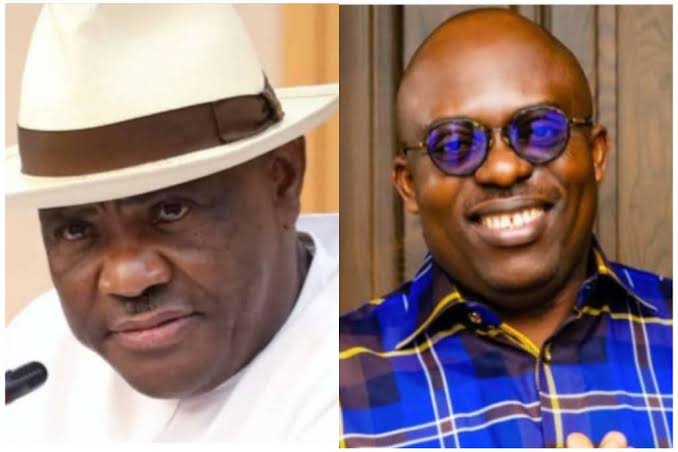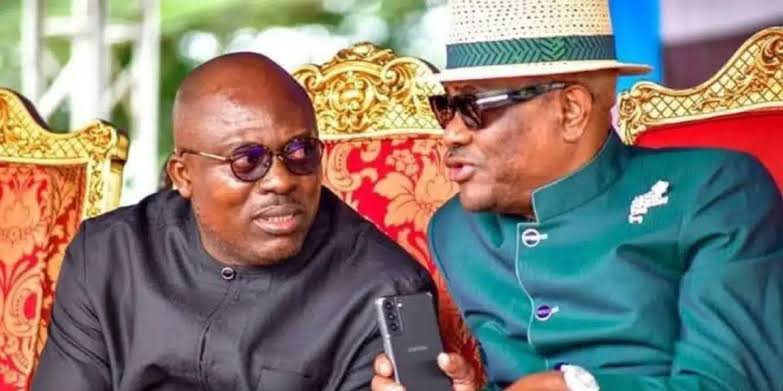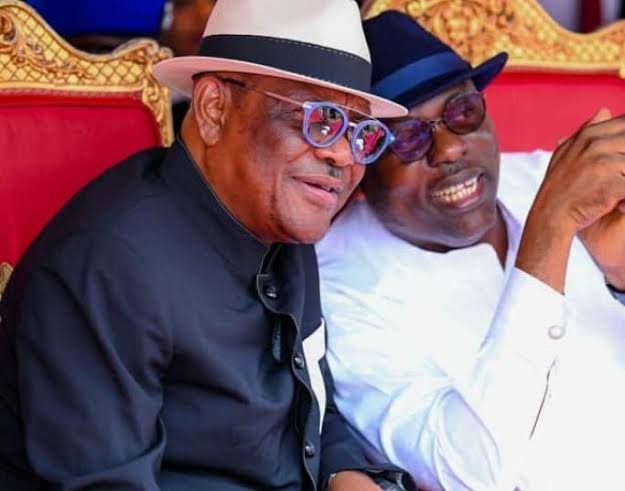Siminalayi Fubara, the governor of Rivers State, recently made a speech that caused a lot of debate. In it, he made it clear what levels of loyalty he has, especially for political allies like former governor Nyesom Wike. Fubara stressed in his speech that he would always fight for justice and the betterment of Rivers State, but he would not go to great steps to be loyal to anyone, like giving up his kidney or liver.
People inside and outside of politics are both interested in what the speaker said at a public event. In answer to rumours about his relationship with Wike, Fubara made a statement. Wike is a major figure in Rivers State politics and helped Fubara become more powerful in politics. Since he took office, Fubara has been under more and more scrutiny for what people see as his loyalty to Wike. Many people are wondering if he would put loyalty ahead of the state’s interests.
Fubara made it clear in his speech that while he welcomes Wike’s support, his loyalty has its limits. The man made it clear that his first duty is to the people of Rivers State and that he would not blindly support anyone if it put their safety at risk or went against his beliefs. That was a strong statement that showed a desire for political freedom and a dedication to putting Rivers State’s needs ahead of all others.

Political experts have talked about Fubara’s comments. A lot of them see it as him trying to make things clear between himself and Wike. There have been many arguments since the start of Fubara’s time about how independent he should be as governor. Some have said that he relies too much on Wike’s support. With his statement that he would not “donate his kidney or liver,” Fubara seems to be making a stand. He is showing that his loyalty is limited and that he will not be a puppet leader.
Fans of Wike, on the other hand, think that the comment was pointless and could mean that their alliance is breaking down. Wike, who has a lot of power in Rivers politics and within the Peoples Democratic Party (PDP), played a big role in making sure Fubara became his replacement. Many people see their relationship as that of a mentor and mentee, and Wike is likely to keep having a lot of power over how the state is run. But Fubara’s comment seems to be a sly pushback against being seen as nothing more than an extension of Wike’s political goals.
People in Rivers State have had a range of reactions. Some people have said they support Fubara’s declaration, saying it is important for him to show his independence and make choices based on what is best for the state instead of just doing what his predecessor told him to do. For them, Fubara’s words are a sign of hope that he plans to be a leader with his own ideas and a focus on what the people need.

On the other hand, some people are worried that a disagreement between Fubara and Wike could make the state’s politics less stable. Wike has been a strong leader in the PDP, and any problems could affect more than just Rivers State. They could also affect the party as a whole. Wike’s impact goes beyond state politics; he has also been a major player in party leadership and national politics. Some people worry that if they have a public argument, it will hurt their political power and give the other side chances to take advantage of any apparent disagreement.
Fubara’s statement also brings up a bigger problem of loyalty in Nigerian politics, where “godfatherism” is often a key factor in deciding how things will go in the political world. It is normal for people who helped a new leader get to power to put pressure on them. This can make it hard to tell the difference between loyalty to an individual and service to the people.
